The Hair You Buy — and the Confidence You Find
The first time you run your fingers through a full head of extensions, something unexpected happens.
Yes, your hair looks thicker. Yes, your reflection feels brand new.
But there’s also a small, undeniable shift inside you — a quiet spark of I feel like myself again.
It’s not vanity. It’s visibility.
In a world that constantly demands composure, women often downplay how deeply hair connects to identity.
Extensions don’t just lengthen hair — they expand presence, reframe confidence, and sometimes even rewrite a chapter of self-worth.
And yet, almost no one talks about what happens emotionally after you leave the salon.
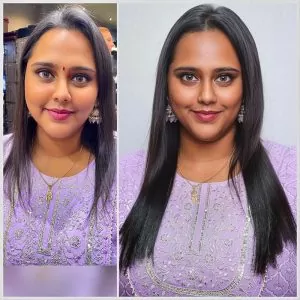
Source: Hera Hair Beauty
1. The “Shock of Seeing Yourself Again”
For many clients, the emotional wave starts the moment the stylist turns the chair toward the mirror.
Some cry. Others laugh. A few go completely silent.
It’s not about the hair itself — it’s about recognition.
They see, often for the first time in years, the version of themselves they missed.
Maybe postpartum thinning made them feel diminished.
Maybe breakage or a bad haircut left them hiding their reflection.
Maybe they’ve just grown tired of explaining why their ponytail feels different than it used to.
Hair extensions give something back — not youth, but continuity.
They bridge the gap between “how I used to feel” and “how I want to feel again.”
Psychologists who study body image call this phenomenon mirror alignment — when your physical reflection matches your internal identity, self-esteem stabilizes. It’s why people describe new hair as “feeling like themselves again.”

Source: Hera Hair Beauty
2. The “Adjustment Period” Nobody Warns You About
Of course, not every emotional moment is glamorous.
In the first week, clients often report mild sensory overwhelm — the extra weight, the different texture, the responsibility.
There’s excitement, yes, but also a touch of anxiety:
Will people notice?
Can I wash it right?
Am I high-maintenance now?
This phase mirrors the psychology of any transformation — even positive ones. When something new changes your reflection, your brain needs time to integrate it.
The key, stylists say, is reassurance: learning care routines, trusting the bond quality, and reframing the extensions not as foreign, but as part of you.
That’s usually when the true emotional lift begins.

Source: Hera Hair Beauty
3. The “Confidence Curve”
By Week Two, something else kicks in — posture.
Clients stand taller, smile wider, and often report dressing differently.
It’s not imagined.
Studies on self-presentation show that self-esteem shifts behaviorally before it registers cognitively. In other words, when you look confident, your brain follows.
Hair, more than any other beauty feature, sits directly in your line of sight.
When it moves, shines, or frames your face differently, your entire perception of self-adjusts.
That’s why so many stylists say their favorite part of the job isn’t the application — it’s the follow-up appointment, when clients walk in owning their look.
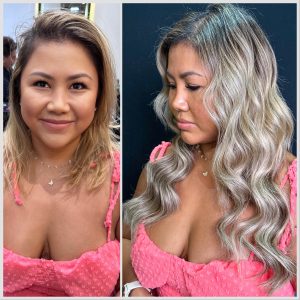
Source: Hera Hair Beauty
4. The Dual Reality: Empowerment and Expectation
There’s another, quieter side to the extension journey that honest writing rarely explores: the pressure to maintain perfection.
The same transformation that gives power can also spark performance anxiety — the fear that you must always look “done.”
One client put it perfectly:
“When I first got extensions, I felt unstoppable.
Then I realized people expected me to look perfect all the time — and I wasn’t ready for that responsibility.”
This paradox is important to acknowledge.
The “expensive hair” aesthetic — smooth, seamless, full — has become a cultural symbol of capability and control. But real confidence isn’t about meeting an image; it’s about choosing it.
A good salon experience grounds the transformation in empowerment, not maintenance addiction.
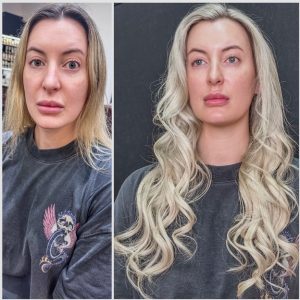
Source: Hera Hair Beauty
5. The “Unfiltered Reality Check” at Month Three
By Month Three, something else happens: the honeymoon phase fades.
Bonded extensions need care.
Growth lines appear.
Your natural hair texture starts to peek through.
This is when emotional durability matters most.
Clients either see their hair as “failing” — or they understand it’s simply living.
Those who accept maintenance as self-care, not a chore, stay confident. Those who expect permanence often feel deflated.
It’s not unlike any relationship:
Consistency keeps the love alive.
Stylists who reframe touch-ups as “refresh moments” (not “repairs”) help clients sustain both the look and the feeling.

Source: Hera Hair Beauty
6. Why Hair Extensions Hit So Deeply for Women
For generations, hair has symbolized freedom, femininity, and social standing.
In almost every culture, long, thick hair signals vitality.
That’s why hair loss — whether from stress, hormones, or genetics — feels disproportionately painful.
It’s not about vanity. It’s about visibility and identity.
Extensions restore not just the appearance of fullness, but the agency that thinning hair silently erodes.
Clinical psychologists even reference hair as part of the “self-extension theory” — the idea that our possessions or features become an extension of identity. When something we identify with is lost, we grieve.
When it’s restored, we feel whole.
That’s why stylists often become quiet therapists. They don’t just apply hair — they restore self-concept.
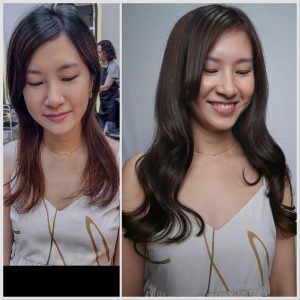
Source: Hera Hair Beauty
7. The Social Layer: Judgment and Liberation
If confidence is the private emotion of extensions, judgment is the public one.
Some clients whisper when they admit they wear them.
Others flaunt them proudly.
But in recent years, that shame has started to erode.
Celebrities, influencers, and stylists have pulled back the curtain, showing tapes, bonds, and wefts without apology. Transparency builds normalization — and normalization builds freedom.
For many women, this shift feels revolutionary:
Extensions are no longer “fake hair.” They’re simply hair solutions.
The conversation is moving from “Does she have extensions?” to “How did she get her extensions to look that seamless?”
That’s empowerment in action — collective permission to embrace beauty tech without guilt.
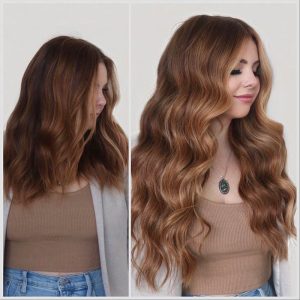
Source: Hera Hair Beauty
8. The Unexpected Emotions Nobody Predicts
Even after the joy and the adjustment, there’s a quieter, more surprising emotion: tenderness.
Clients start treating their hair more gently.
They brush slower.
They protect it from sun, friction, and heat.
It’s as if the new hair teaches them to treat the old hair with more love, too.
In therapy terms, this is called embodied self-compassion — when physical care becomes emotional healing.
The investment makes the person pay attention to their body again, not from criticism, but from care.
That’s why the “extension era” often triggers broader life shifts: new wardrobes, new boundaries, even new relationships.
Because confidence, once awakened, rarely stays confined to the mirror.
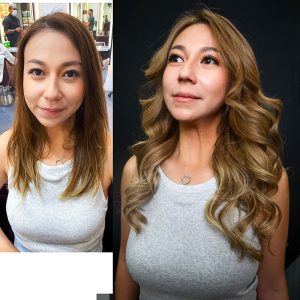
Source: Hera Hair Beauty
9. The Extension Paradox: Real Hair, Unreal Expectations
Social media plays a double-edged role in this story.
Platforms like Instagram and TikTok glorify the before-and-after — but skip the after-after: washing routines, sleeping adjustments, reapplication sessions.
This gap breeds unrealistic expectations — especially for first-time clients.
That’s why responsible salons now emphasize education over transformation.
A beautiful head of hair means nothing if it’s built on stress and misinformation.
Luxury today isn’t about hiding effort. It’s about honoring process.
That’s the modern “expensive” — honest beauty that holds up under real life.
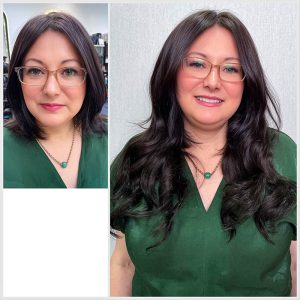
Source: Hera Hair Beauty
10. The Renewal Phase: When Confidence Becomes Calm
By Month Four or Five, extensions stop being “new.”
They simply become you.
You stop performing your confidence — you embody it.
That’s the real transformation: when what once felt like a luxury becomes normal self-care.
The emotional curve flattens into quiet ownership.
You no longer need to prove that you deserve beauty — you just live in it.
And when that happens, even removing the extensions doesn’t take the confidence away.
It stays.

Source: Hera Hair Beauty
11. The Stylist’s Role in Emotional Aftercare
The best salons know they’re not just in the hair business — they’re in the identity business.
A skilled colorist or extension specialist doesn’t just match shades. They manage expectations, emotional pacing, and post-service confidence.
Top salons offer “Extension Aftercare Reviews” — not as sales check-ins, but as emotional recalibrations:
-
How do you feel when you look in the mirror now?
-
What do you love most about your new hair?
-
What still feels unfamiliar?
That conversation transforms maintenance into mindfulness — and clients into advocates.

Source: Hera Hair Beauty
12. The Future of Extensions: Confidence as Currency
Hair extensions are no longer a secret luxury.
They’re the modern equivalent of tailoring — a personal investment in presentation.
But the emotional ROI is far greater than volume or length.
Extensions deliver a feeling of alignment:
When the outer self reflects the inner self, life simply flows more easily.
It’s not about chasing perfection. It’s about creating congruence — between how you look and who you’ve become.
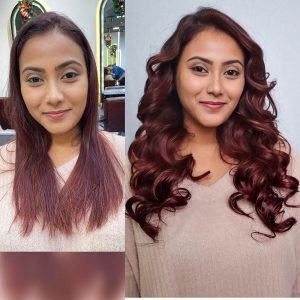
Source: Hera Hair Beauty
13. The Psychology of Feeling “Expensive”
In behavioral science, expensiveness isn’t about cost — it’s about perception.
When something looks intentional, polished, and cared for, the human brain reads it as valuable.
That’s what clients mean when they say their hair feels “expensive.”
It’s not about showing off wealth — it’s about showing up well.
Balayage might fade. Bonds might loosen. But self-assurance? That’s the most durable style of all.

Source: Hera Hair Beauty
14. The Quiet Beauty Revolution
For years, women were told to make transformation look effortless.
Now, they’re learning to make effort look empowering.
Hair extensions symbolize that shift — from secrecy to ownership, from shame to pride.
They represent a new kind of beauty revolution: one where women stop apologizing for wanting to look like their fullest selves.
Final Thought: You Don’t Just Leave with More Hair — You Leave with More You
Every strand applied in a salon chair carries a quiet story: loss, recovery, reinvention.
What happens emotionally after extensions isn’t superficial — it’s deeply human.
Because when you look in the mirror and finally recognize yourself, it’s not vanity.
It’s healing.
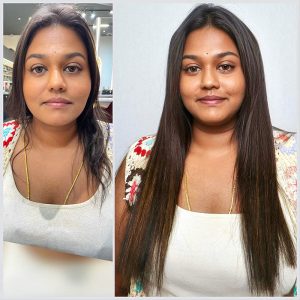
Source: Hera Hair Beauty
References and Credible Insights
-
American Psychological Association (APA) — research on body image and self-concept.
-
International Journal of Cosmetic Science (2023) — studies on UV damage, hair structure, and sensory perception.
-
Harvard Business Review — self-presentation and confidence behavior studies.
-
British Journal of Psychology — self-extension theory and emotional attachment to physical appearance.
-
Trichology Association education resources — emotional impact of hair loss and cosmetic restoration.


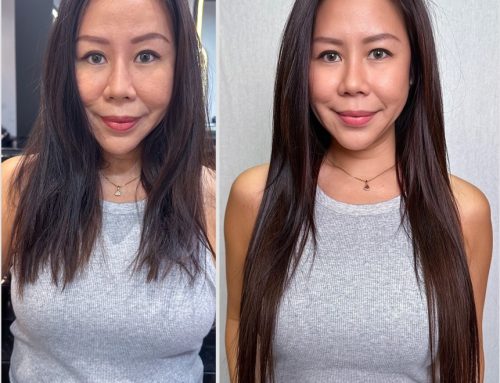
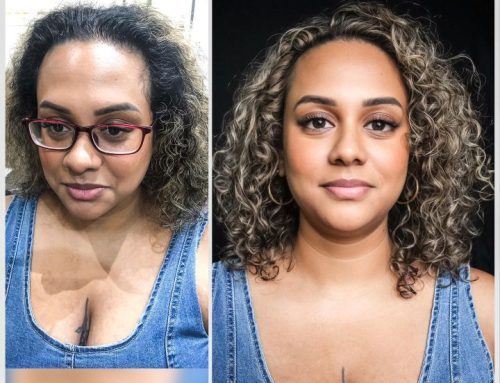
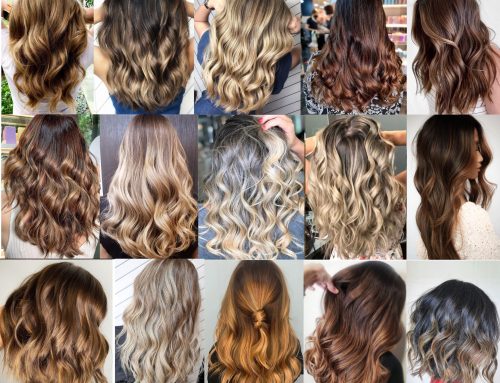
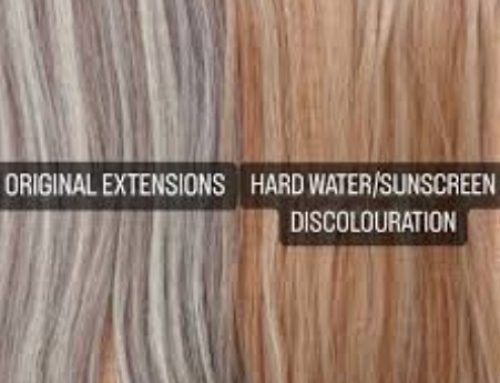

Leave A Comment